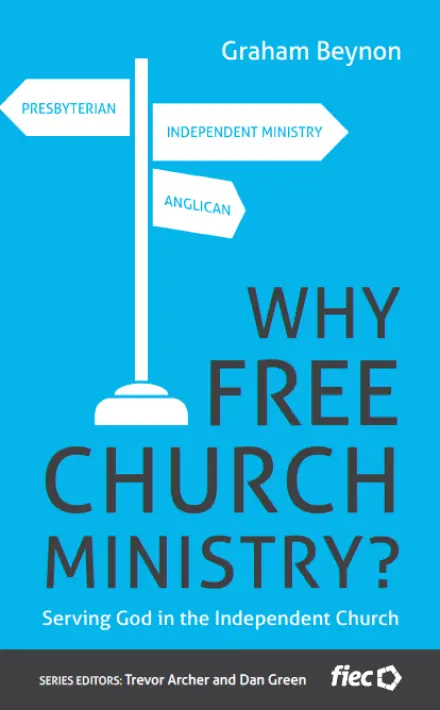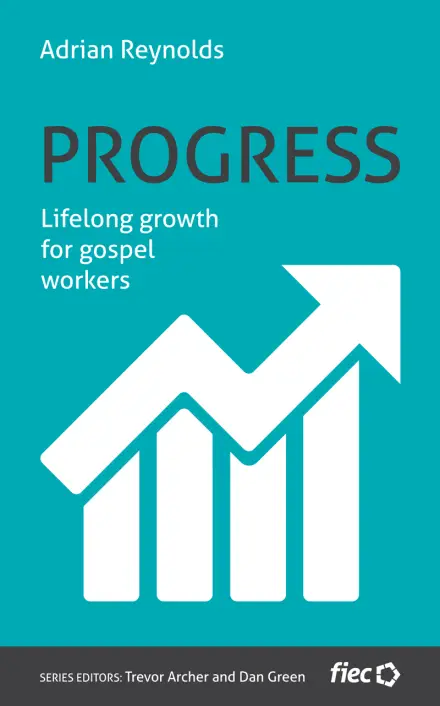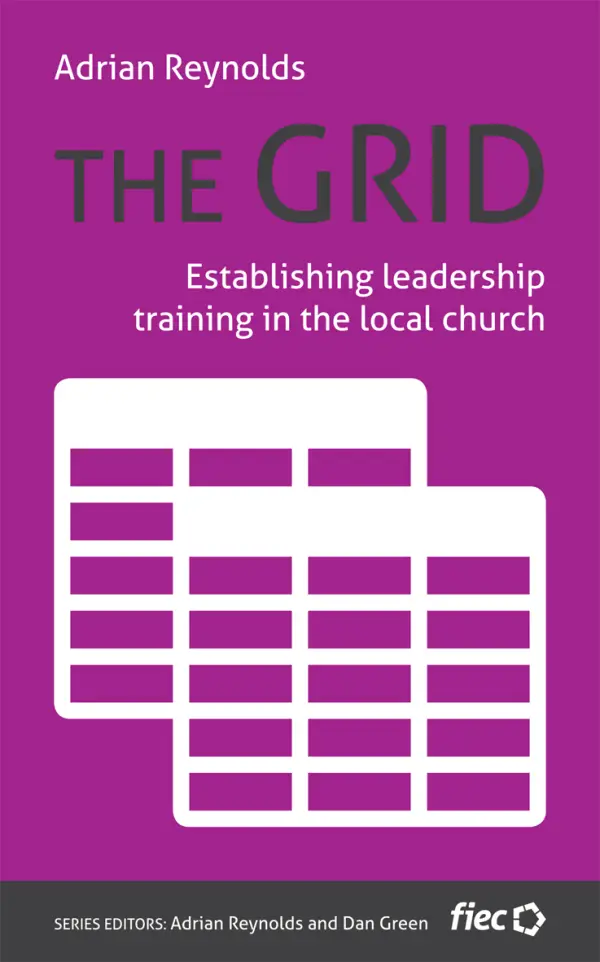The Grid
Godly and effective church leaders are vital to the health of any local church. Thus, training church leaders must be a priority in every church to ensure that our leaders are equipped and competent for service. In The Grid, Adrian Reynolds has done an excellent job in writing a very easy–to–read and easy–to–use practical guide to assist church leaders in thinking through (1) the biblical necessity of training church leaders and (2) helping us think through how we may review and assess church leaders. In the first part of the book, Reynolds answers why training is so important and, in the second part, he kindly gifts us a guide to plan and evaluate our training priorities. The beauty of Reynold’s Grid is that he sees his book not as a silver bullet to our problems but as a discussion tool that can help to set priorities for church leaders. The advantage of The Grid is that it can be easily adapted to suit any church context, so I personally think this book would be ideal for any ministry team, Kirk Session, and Deacons’ Court to use.
Andy Longwe
The Grid
Training can be like marmite, you either love it or you hate it. Training is not only something for those in full time ministry but it is part of life for every Christian, we should all be growing more into the image of Jesus through the work of the Holy Spirit. The Grid is a short and practical book that every Christian should read.
Adrian Reynolds has written a book that is accessible, readable and very practical. If you want to be trained, if you want to train others, if you want to assess how you can be developing yourself or your ministry team use this grid and continue to learn and grow in your love for the Lord, His Word, His People and the Lost
Alistair Chalmers
Everyone needs to read this book.
Training can be like marmite, you either love it or you hate it. Training is not only something for those in full time ministry but it is part of life for every Christian, we should all be growing more into the image of Jesus through the work of the Holy Spirit. The Grid is a short and practical book that every Christian should read.
Adrian Reynolds has written a book that is accessible, readable and very practical. If you want to be trained, if you want to train others, if you want to assess how you can be developing yourself or your ministry team use this grid and continue to learn and grow in your love for the Lord, His Word, His People and the Lost
Alistair Chalmers
The Grid
Adrian Reynolds is the training director for the FIEC and has written a short and highly readable book on how we should train leaders (of all types) in the FIEC.
The first part of the book covers the biblical case for training and sets out a very practical grid to use by churches to discuss what training is needed. Down one side of the grid you have the qualities and skills needed: Adrain chooses godliness, ministry of the word, knowledge, leadership, evangelism and coaching. Very importantly Adrian includes the often overlooked pastoral side of word ministry. Then on the other axis he includes all the different types of leadership roles that we see in the Bible - for example pastor teachers, evangelists, elders, deacons and so on. The grid is designed to promote discussion and arrive at a high level overview. There’s nothing magic about it of course but to my mind it seems a very practical and easy to understand place to start. Key as he stresses is for churches to discuss “where do we want to go” and “how to we get there/bridge the gap”
Then in the second part he makes some overall comments about the lessons we can draw for today from the grid. He points out for example the over emphasis on ministry of the word compared to all the other leadership skills “we end up making that one skill into everything”. 'Word ministry' also he rightly suggests tends to be defined much too narrowly. Next he points out the confusion often seen between knowledge and word ministry. Perhaps to me the most important points are the next two: the complete lack of emphasis on training for pioneers and evangelists, both in UK and worldwide. This to me is the single biggest weakness we see today in our church. We have many fine bible teachers but only a tiny handful of evangelists. How much time do pastor-teachers really spend on this? And given that 99.9% of the non Christians will never darken the door of our church evangelistic preaching (while good) is not the same thing at all. Finally Adrian comments on the strange imbalance of training for elders (almost none) vs that available for pastors and the much neglected areas of training in leadership and coaching.
There are also some very valid and helpful comments for theological colleges. Adrian stresses, surely correctly, that the local church does (or should do) everything and so has the ultimate responsibility for trainees. He suggests that much of the problems arise because churches fail to own the people they send off for training. Seminaries etc are but agents of the local church but from my experience theological colleges who want to live up to Adrian’s recommendation sometimes struggle to get their church counterparts interested in theological training.
Adrian has a wonderful overview of the UK situation from his key role at the FIEC, which plays a major role across the evangelical UK Church. His new book is excellent: it’s practical, well written, thoughtful and I hope it stimulates discussion in many local churches about how to train men and women in leadership. Pastors, please buy a copy for all your leaders (10 ofThose as always have great pricing) and get them to read it and discuss it.
Jeremy Marshall
Practical, stimulating and helpful
Adrian Reynolds is the training director for the FIEC and has written a short and highly readable book on how we should train leaders (of all types) in the FIEC.
The first part of the book covers the biblical case for training and sets out a very practical grid to use by churches to discuss what training is needed. Down one side of the grid you have the qualities and skills needed: Adrain chooses godliness, ministry of the word, knowledge, leadership, evangelism and coaching. Very importantly Adrian includes the often overlooked pastoral side of word ministry. Then on the other axis he includes all the different types of leadership roles that we see in the Bible - for example pastor teachers, evangelists, elders, deacons and so on. The grid is designed to promote discussion and arrive at a high level overview. There’s nothing magic about it of course but to my mind it seems a very practical and easy to understand place to start. Key as he stresses is for churches to discuss “where do we want to go” and “how to we get there/bridge the gap”
Then in the second part he makes some overall comments about the lessons we can draw for today from the grid. He points out for example the over emphasis on ministry of the word compared to all the other leadership skills “we end up making that one skill into everything”. 'Word ministry' also he rightly suggests tends to be defined much too narrowly. Next he points out the confusion often seen between knowledge and word ministry. Perhaps to me the most important points are the next two: the complete lack of emphasis on training for pioneers and evangelists, both in UK and worldwide. This to me is the single biggest weakness we see today in our church. We have many fine bible teachers but only a tiny handful of evangelists. How much time do pastor-teachers really spend on this? And given that 99.9% of the non Christians will never darken the door of our church evangelistic preaching (while good) is not the same thing at all. Finally Adrian comments on the strange imbalance of training for elders (almost none) vs that available for pastors and the much neglected areas of training in leadership and coaching.
There are also some very valid and helpful comments for theological colleges. Adrian stresses, surely correctly, that the local church does (or should do) everything and so has the ultimate responsibility for trainees. He suggests that much of the problems arise because churches fail to own the people they send off for training. Seminaries etc are but agents of the local church but from my experience theological colleges who want to live up to Adrian’s recommendation sometimes struggle to get their church counterparts interested in theological training.
Adrian has a wonderful overview of the UK situation from his key role at the FIEC, which plays a major role across the evangelical UK Church. His new book is excellent: it’s practical, well written, thoughtful and I hope it stimulates discussion in many local churches about how to train men and women in leadership. Pastors, please buy a copy for all your leaders (10 ofThose as always have great pricing) and get them to read it and discuss it.
Jeremy Marshall
The Grid
I thought this was a useful tool for leadership and ministry teams in churches. It looks at the different areas that are needed in leadership and the different areas they may serve. It provides a tool to assess where we are up to and where we need to invest in people. It broadens our outlook by highlighting areas where we have ignored training people - for example in unpaid elder and deacons. Well worth reading as a diagnostic tool for your leaders.
David
Very useful tool for leadership teams
I thought this was a useful tool for leadership and ministry teams in churches. It looks at the different areas that are needed in leadership and the different areas they may serve. It provides a tool to assess where we are up to and where we need to invest in people. It broadens our outlook by highlighting areas where we have ignored training people - for example in unpaid elder and deacons. Well worth reading as a diagnostic tool for your leaders.
David






